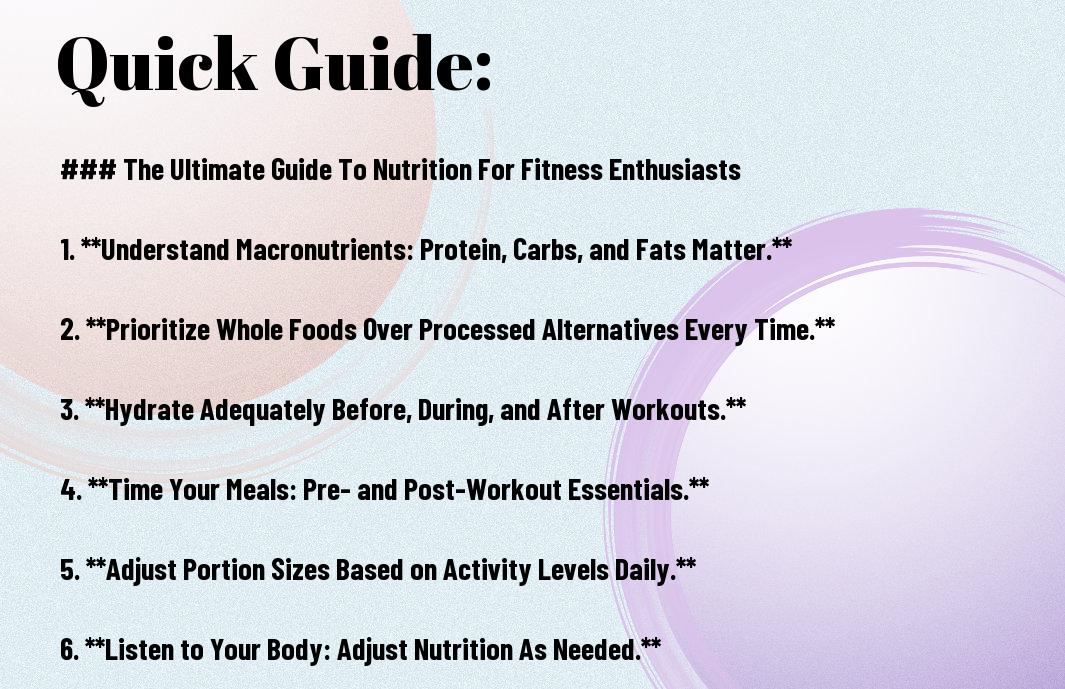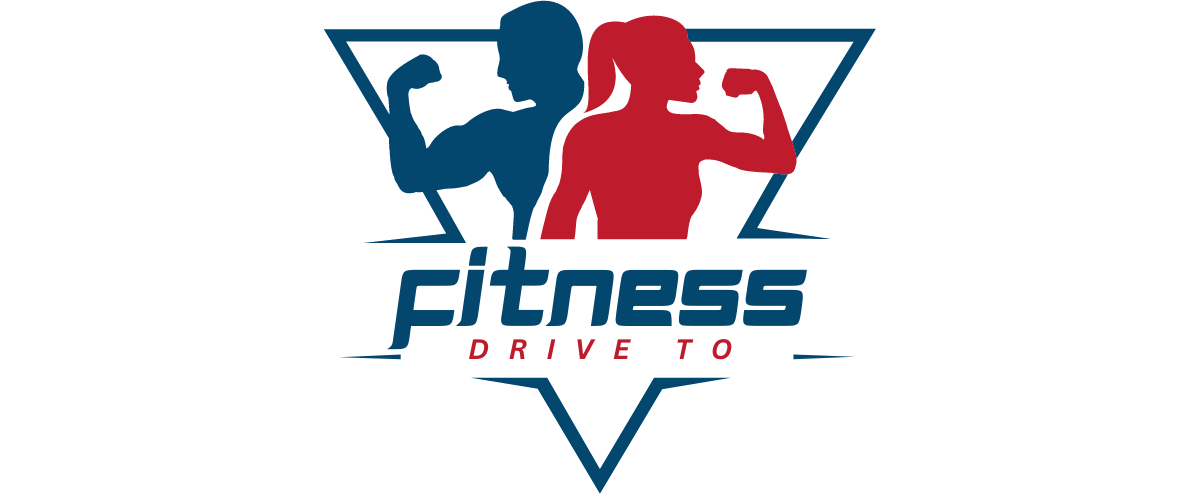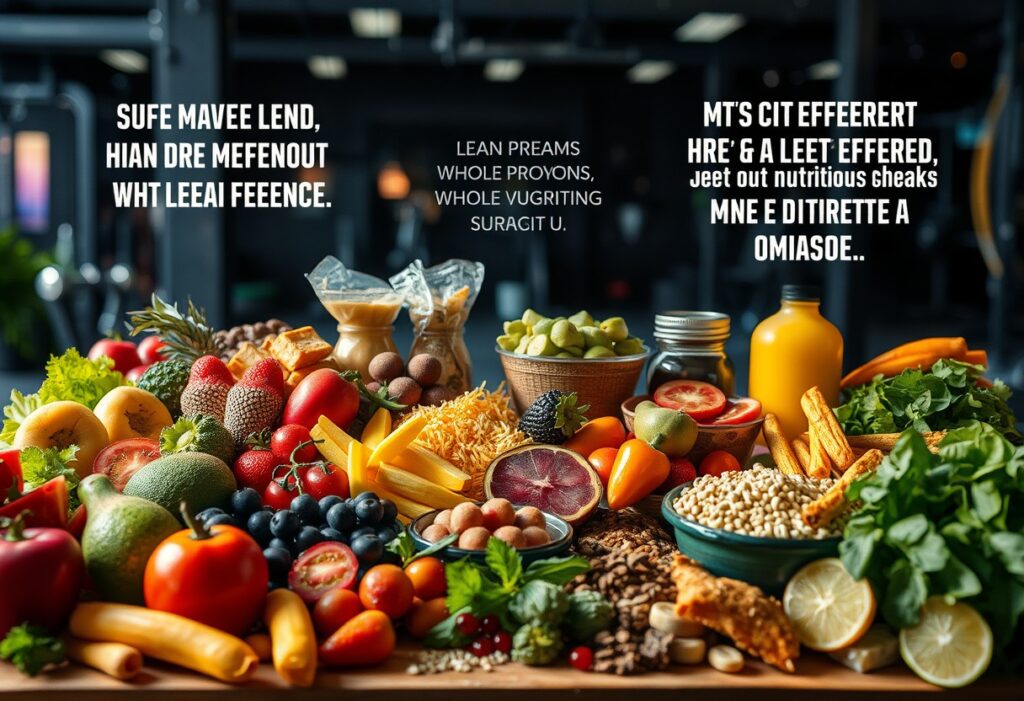There’s no denying that proper nutrition is crucial for maximizing your fitness performance and achieving your goals. In this guide, you will discover imperative strategies to fuel your workouts effectively, helping you to enhance strength, endurance, and recovery. Learn how to balance macronutrients, identify the best timing for meals, and make informed choices that will not only boost your energy but also promote overall health. By implementing these nutrition tips, you can turn your hard work in the gym into impressive results.
Key Takeaways:
- Macronutrient Balance: Understanding the optimal ratios of carbohydrates, proteins, and fats is crucial for maximizing energy and muscle recovery.
- Hydration: Staying adequately hydrated is necessary for performance; aim to drink water before, during, and after workouts.
- Timing of Meals: Consuming pre-workout and post-workout meals appropriately can enhance your energy levels and recovery rate.
- Quality of Food: Focus on whole, nutrient-dense foods to fuel your body effectively and support overall health.
- Supplementation: Use supplements wisely; they can support your fitness goals when used to fill gaps in your diet rather than as a primary source of nutrition.

Understanding Nutrition
While launching on a fitness journey, it’s crucial to grasp the necessarys of nutrition to optimize your performance and recovery. This means understanding the various components your body needs to function effectively. Nutrition plays a pivotal role in enhancing your energy levels, facilitating muscle repair, and supporting overall health. By educating yourself on the different types of nutrients available, you can make informed decisions about your diet and fuel your workouts efficiently.
Types of Nutrients
You should be aware that there are two primary categories of nutrients: macronutrients and micronutrients. Macronutrients include carbohydrates, proteins, and fats, which provide the energy necessary for active lifestyles. Micronutrients, on the other hand, consist of vitamins and minerals that support various bodily functions, including immune health and muscle contractions. Here’s a brief overview:
| Nutrient Type | Function |
| Carbohydrates | Primary energy source for workouts |
| Proteins | Essential for muscle repair and growth |
| Fats | Supports hormone production and energy |
| Vitamins | Boost overall health and immune function |
| Minerals | Regulate muscle function and hydration |
For fitness enthusiasts, the balance and timing of these macronutrients are critical to your performance and recovery. Carbohydrates are necessary for fueling your workouts, while proteins play a vital role in repairing and building muscle tissue. Fats are also important, as they support long-term energy needs and hormone synthesis. To get the most out of your training, it’s beneficial to consume a balanced intake of these macronutrients based on your specific goals.
Macronutrients work together to provide your body with the necessary energy and support for daily activities and intense workouts. Knowing how to manipulate the ratios of these nutrients can help you lose weight, gain muscle, or improve overall performance. A common guideline is to aim for a ratio of around 45-65% of your calories from carbohydrates, 10-35% from proteins, and 20-35% from fats. This can vary based on your individual needs and fitness objectives.
Micronutrients: Vitamins and Minerals
Proteins alone are not sufficient; your body also requires a multitude of micronutrients to function optimally. Vitamins and minerals are necessary for supporting metabolic processes, aiding in energy production, and ensuring proper muscle function. These micronutrients can be obtained from a well-rounded diet rich in fruits, vegetables, lean proteins, and whole grains. Deficiencies can lead to various health issues, including fatigue and impaired performance.
The significance of micronutrients in your diet cannot be overstated, as they play critical roles in maintaining your overall health. Keeping an eye on your vitamin and mineral intake will not only enhance your fitness performance but also support your immune system and recovery. Regularly including a variety of nutrient-rich foods in your meals can help you meet your daily requirements without needing supplements. Knowing how to optimize your micronutrient intake is just as crucial as managing macronutrients, especially during periods of intense training.
The Role of Nutrition in Fitness
You may often hear phrases like “you are what you eat,” and for fitness enthusiasts, this statement carries immense weight. Nutrition is more than just a way to fuel your body; it’s the cornerstone of your performance, recovery, and overall health. The right nutrients can elevate your workouts, enhance your endurance, and even expedite muscle recovery. Whether you’re lifting weights, running marathons, or practicing yoga, understanding your nutritional needs is crucial to meeting your fitness goals.
How Nutrition Affects Performance
Now, let’s probe deeper into how the food you consume directly influences your athletic performance. Your body relies on various nutrients—carbohydrates, proteins, fats, vitamins, and minerals—to function efficiently. When you feed your body the right blend of these macronutrients, you provide it with the fuel needed for energy, muscle repair, and efficient metabolic processes. Conversely, a poor diet can lead to fatigue, diminished strength, and even hinder your ability to focus during workouts.
Furthermore, the type of foods you eat can regulate your energy levels throughout the day. For instance, consuming complex carbohydrates like whole grains and fruits can provide you with a steady energy supply, allowing you to perform at your peak. On the flip side, refined sugars and fatty snacks may offer a quick boost but often lead to an energy crash, leaving you feeling lethargic and unmotivated.
The Importance of Hydration
If you overlook the importance of hydration, you could be severely undermining your fitness potential. Water plays a vital role in almost every bodily function, including nutrient transport, thermoregulation, and joint lubrication. Staying properly hydrated helps maintain your energy levels and endurance during workouts, while dehydration can lead to a significant decline in performance. Even a loss of as little as 2% of your body weight due to dehydration can reduce your physical capabilities.
Understanding your hydration needs is important, especially during intense training sessions or hot weather. You should aim to drink water before, during, and after your workouts. Incorporating electrolyte-rich beverages can also help replenish lost minerals and support muscle function, making hydration a key component of your nutrition strategy.
Nutritional Timing and Its Impact
An effective nutrition plan goes beyond what you eat— it also involves when you eat. Timing your meals and snacks optimally can maximize your performance and support recovery. Consuming the right nutrients before, during, and after your workouts can significantly impact your energy levels and muscle synthesis. For instance, having a meal rich in carbohydrates and protein about 1-2 hours before exercising prepares your body for the upcoming stress of a workout, while eating a post-workout meal within an hour can kickstart the recovery process.
Moreover, understanding the concept of nutritional timing can help you strategize your meals to align with your training schedule. By synchronizing your nutrient intake with your workout routine, you are setting yourself up for success and ensuring that your body has the necessary resources to function effectively.
Nutrition is not just a matter of calories in and calories out; it’s a dynamic factor that plays a critical role in your fitness journey. Optimizing both the timing and quality of your food intake can pave the way for improved performance, enhanced recovery, and long-term health benefits.
Nutritional Strategies for Workout Fueling
After you commit to a fitness routine, understanding the role of nutrition becomes crucial in optimizing your performance. Proper fueling not only enhances your workouts but also aids in better recovery post-exercise. To gain insight into effective strategies, consider checking out Nutrition Tips for Fitness Enthusiasts: What to Eat Pre and Post Workout. This resource will provide valuable information on timing and the types of foods you should consume.
Pre-Workout Nutrition: What to Eat and When
There’s a distinct connection between your pre-workout meals and your performance. Ideally, you should aim to eat a balanced meal 2-3 hours before your workout, consisting of complex carbohydrates, lean protein, and healthy fats. This combination provides you with sustained energy and prevents those dreaded hunger pangs mid-session. If time isn’t on your side, a small snack rich in carbs and protein, like a banana with peanut butter or a protein smoothie, about 30 minutes before your workout can still be beneficial.
Remember that everyone has unique metabolic responses, so it may take some experimentation to find what works best for you. Listening to your body and adjusting your pre-workout nutrition accordingly can help ensure you’re always at your best.
During Workout Nutrition: Staying Energized
When engaging in longer or more intense workouts, staying energized is a priority. While your body primarily relies on stored carbohydrates, they can deplete quickly, leading to fatigue. It’s advisable to consume easily digestible sources of energy, such as sports gels, electrolyte beverages, or fruit, every 30 to 60 minutes during your workout, especially if you’re exercising for over an hour. This will keep your energy levels up and enhance your performance.
Another vital aspect is hydration. Sipping water regularly throughout your session helps prevent dehydration, which can significantly affect your physical capabilities. Aim to drink around 7-10 ounces of water every 10-20 minutes while exercising, more if you’re in a hot climate or sweating profusely.
Post-Workout Recovery: Refueling the Body
Energized from your workout? It’s time to refuel! Your post-workout nutrition plays a critical role in recovery, ideally within 30 minutes to two hours after your workout. Focus on a mix of protein to aid muscle repair and carbohydrates to replenish glycogen stores. A popular choice is a protein shake blended with fruit or a balanced meal containing both proteins and carbs, such as grilled chicken with quinoa and vegetables.
With the right post-workout nutrition, you set the stage for improved muscle recovery and growth, ultimately enhancing your overall fitness trajectory. Prioritize this window to ensure you’re building strength and not just burning it away.
Tips for Tailoring Nutrition to Your Fitness Goals
Despite the common belief that a standard diet will work for everyone, nutrition must be customized to match your individual fitness goals. The right approach can significantly enhance your performance, recovery, and overall well-being. Here are some important tips that can help you align your dietary choices with your fitness aspirations:
- Identify your specific fitness goals: Are you bulking, cutting, or maintaining your weight?
- Adjust caloric intake based on your activity level: More active days require higher caloric intake.
- Customize your macronutrient ratios: Optimal ratios of carbs, protein, and fats can boost your performance.
- Consider nutrient timing: Eating before and after your workouts can affect your results.
Perceiving that your diet is just as important as your workout routine will help you make informed choices that drive results.
Identifying Your Fitness Goals: Bulking vs. Cutting
The path you choose—whether bulking or cutting—will determine your dietary needs. If you’re looking to bulk, the main focus should be on consuming a calorie surplus alongside adequate protein to foster muscle growth. This typically involves increasing your intake of healthy carbohydrates and fats as well. On the other hand, if your goal is cutting, you need to focus on a calorie deficit while maintaining your protein intake to preserve muscle mass. Therefore, knowing your ultimate aim is crucial to crafting a strategy that works.
Additionally, understanding the balance between the two will prevent any potential pitfalls. For instance, if you’re bulking and consume excessive calories beyond your requirements, it may lead to unwanted fat gain. Conversely, undereating while cutting can hinder your progress and leave you fatigued, making it crucial to strike the right balance based on your specific scenarios.
Adjusting Caloric Intake Based on Activity Level
Fitness enthusiasts frequently experience variations in their activity levels from day to day, necessitating adjustments in caloric intake. On days characterized by high-intensity workouts or extended sessions, it’s vital to consume more calories and provide your body with the fuel it requires. Conversely, on rest days or low-activity days, maintaining a slight caloric deficit can still yield results without compromising recovery.
With regular assessments of your activity levels and corresponding adjustments in your caloric intake, you’ll ensure that your body has sufficient energy to perform optimally without unnecessary weight gain or loss.
Customizing Macronutrient Ratios
Some fitness enthusiasts find success by tailoring their macronutrient ratios according to specific training demands. For instance, if your primary goal is to build muscle, prioritizing protein intake is crucial. The more active you are, the greater your need for protein to support recovery and growth. Alternatively, if you’re focused on endurance training, you might want to increase your carbohydrate intake to provide quick energy for prolonged activities.
Your approach to customizing these ratios can significantly influence your performance. It’s not just about hitting certain grams of each macronutrient but understanding how they interact with your body’s needs during various stages of training and recovery.
Common Nutritional Myths Debunked
All fitness enthusiasts should be aware that misconceptions about nutrition can greatly impact your performance and overall health. By debunking these common myths, you can make informed decisions about your diet and fuel your workouts effectively.
Myth: Carbohydrates are Bad for You
To begin with, it’s important to understand that carbohydrates are not the enemy. In fact, carbohydrates are one of the primary sources of energy for your body, especially during intense workouts. When you consume carbohydrates, your body breaks them down into glucose, which is used to fuel your muscles and brain. Eliminating carbs from your diet can lead to decreased energy levels, fatigue, and diminished workout performance. Instead of viewing carbohydrates as bad, focus on consuming healthy sources like whole grains, fruits, and vegetables which provide vital nutrients and help maintain your energy levels.
Moreover, the type and timing of carbohydrate intake can significantly influence how you feel during your workouts. By incorporating carbohydrates before and after exercise, you can enhance your performance and aid in recovery. So, rather than fearing carbs, embrace them as an vital part of your fitness journey.
Myth: All Fats are Unhealthy
Some individuals believe that all fats are detrimental to your health, but this is not entirely true. While it’s vital to limit saturated and trans fats, not all fats are created equal. In fact, healthy fats, such as those found in avocados, nuts, seeds, and fatty fish, play a vital role in your overall health and fitness. These fats are crucial for hormone production, nutrient absorption, and can even help you feel satiated, which is important for maintaining a balanced diet. Incorporating a moderate amount of healthy fats into your meals can enhance your energy levels and support muscle recovery.
With the right balance of fats, you can experience a myriad of benefits, including improved heart health and brain function. Emphasizing healthy fats in place of unhealthy ones will not only help fulfill your body’s nutritional needs but may also enhance your athletic performance.
Myth: You Must Eat Meat to Get Enough Protein
Protein is a vital macronutrient necessary for muscle development and recovery, but the notion that you must eat meat to meet your protein needs is misleading. Many plant-based sources of protein, such as legumes, quinoa, tofu, and tempeh, can provide you with the vital amino acids your body needs to thrive. Additionally, incorporating a variety of protein sources into your diet can help you achieve a more balanced intake of nutrients that contribute to optimal health and performance.
Fats and protein are both critical components of a well-rounded diet, and understanding that you don’t have to rely solely on animal products to meet your protein needs is empowering. By exploring diverse food sources, you can keep your meals interesting, satisfying, and aligned with your fitness goals. Always remember to listen to your body and adjust your nutrition to find what works best for you, regardless of dietary preferences.
Pros and Cons of Popular Diets for Fitness Enthusiasts
Keep in mind that choosing the right diet is crucial for your fitness journey. Below is a breakdown of the pros and cons of some popular diets that many fitness enthusiasts consider:
| Diets | Pros and Cons |
|---|---|
| Keto Diet | Pros: Rapid weight loss, appetite suppression, increased energy. Cons: Nutrient deficiencies, difficulty maintaining, potential negative impact on athletic performance. |
| Vegan Diet | Pros: Rich in nutrients, lower cholesterol, environmental benefits. Cons: Potential protein deficiency, need for careful planning. |
| Vegetarian Diet | Pros: Diverse food options, heart health benefits, high in fiber. Cons: Iron and vitamin B12 deficiency risks, could lead to overeating carbohydrates. |
| Paleo Diet | Pros: Whole foods focus, good for weight management, high in healthy fats. Cons: Excludes many food groups, may be expensive. |
| Intermittent Fasting | Pros: Weight loss, improved metabolic health, simplifies meal planning. Cons: Hunger can be a challenge, may lead to overeating during eating periods. |
| Low-Carb Diet | Pros: Effective for weight loss, decreased insulin levels. Cons: May affect performance, potential side effects like fatigue. |
| Mediterranean Diet | Pros: Heart-healthy, balances food groups, sustainable. Cons: Requires knowledge about food preparation, can be calorie-intensive. |
| DASH Diet | Pros: Lowers blood pressure, rich in fruits and vegetables. Cons: May be too restrictive for some, requires meal prepping. |
| Flexitarian Diet | Pros: Flexibility with food choices, promotes plant-based eating. Cons: May still include unhealthy foods, requires careful planning. |
| Whole30 | Pros: Encourages whole foods, helps identify food sensitivities. Cons: Very restrictive, short-term only approach. |
The Keto Diet: Benefits and Drawbacks
Clearly, the Keto Diet focuses on consuming a high-fat, low-carbohydrate diet. This method can lead to rapid weight loss and improve energy levels for many fitness enthusiasts. The high-fat content can help with sustaining longer workout periods and suppressing hunger, which is beneficial during intense training sessions. The quick changes in your body’s metabolism can lead to losing fat while maintaining muscle mass.
However, it’s important to weigh the drawbacks of the keto diet. Many people may experience nutrient deficiencies due to the limited variety of fruits and vegetables allowed. Moreover, if you aim to perform high-intensity workouts, the low-carb approach may not provide the carbohydrates your body needs for explosive power and endurance. Thus, adopting this diet can be challenging if you are an active individual.
Vegan and Vegetarian Diets: Nutritional Considerations
Diet plays a significant role in how well you can fuel your workouts, especially if you follow a vegan or vegetarian approach. These diets are rich in nutrients and often lower in calories, which can assist with weight management. However, they also pose unique challenges, such as obtaining adequate levels of protein, iron, and vitamin B12. Careful planning is crucial to ensure you are meeting all of your nutritional requirements.
Plus, you may need to be intentional about incorporating a variety of protein sources into your meals, such as legumes, nuts, seeds, tofu, and whole grains. Monitoring your nutrient levels can make a significant difference in your overall performance and recovery, ensuring you’re able to maximize your workouts without compromising your health.
Intermittent Fasting: Is It Right for You?
There’s no denying that **intermittent fasting (IF)** has gained traction among fitness enthusiasts for its potential health benefits, including weight loss and improved metabolic health. This eating pattern can simplify your meal planning, allowing you the freedom to focus on what you eat rather than constantly worrying about meal times. Moreover, many individuals report experiencing increased mental clarity during fasting periods, contributing to enhanced workouts.
However, you must consider whether intermittent fasting suits your lifestyle and workout regimen. While many people adapt easily, others struggle with hunger and irritability, which can detract from your performance. It is crucial to listen to your body to determine if this approach is beneficial for your fitness goals.
Drawbacks of this eating strategy may include a tendency to overeat during feeding times, which can nullify any caloric deficit achieved through fasting. If you choose to incorporate intermittent fasting into your routine, pay close attention to your food choices, ensuring they are nutrient-dense to support your physical activity effectively.

Practical Steps for Implementing a Nutrition Plan
Many fitness enthusiasts struggle with nutrition because they don’t have a clear plan in place. To effectively fuel your workouts and achieve your fitness goals, implementing a structured nutrition strategy is important. This can make a significant difference not only in your energy levels and recovery but also in your overall performance. Here are some practical steps that can help you develop a comprehensive nutrition plan tailored to your needs.
Creating a Balanced Meal Plan
Clearly, creating a balanced meal plan is the foundation of effective nutrition. Start by incorporating a variety of food groups into your meals—these include lean proteins, whole grains, healthy fats, and a range of fruits and vegetables. Ensure that each meal contains a source of protein to support muscle repair, carbohydrates for energy, and healthy fats for optimal hormone function. Additionally, consider your daily caloric needs and adjust portion sizes accordingly to maintain or achieve your desired weight.
Another critical aspect is to pay attention to meal timing, particularly around your workouts. Organizing your meals to include nutrient-dense snacks both pre- and post-workout can help you maximize your performance and boost recovery. A good rule of thumb is to consume a carbohydrate-rich snack before workouts and a combination of protein and carbohydrates afterward. This simple strategy ensures that your body has immediate access to energy and the right nutrients for muscle rebuilding.
Meal Prep Tips for Busy Schedules
Now, meal prep can be a game changer, especially for those with busy schedules. Prepping your meals in advance allows you to maintain discipline and ensures that you’re consuming nutritious foods rather than resorting to quick but less healthy options. Start by dedicating a few hours each week to plan and prepare your meals. This can be something as simple as chopping vegetables, cooking grains in bulk, or portioning out snacks for the week to keep you on track.
- Set aside time weekly for meal prep
- Batch cook staple foods like rice and quinoa
- Use containers for portion control
- Keep snacks ready to grab.
After dedicating some time to meal prep, you’ll find it much easier to stick to your nutrition plan throughout the week. This proactive approach saves time, reduces last-minute decisions about what to eat, and minimizes the temptation for unhealthy choices.
Tracking Your Nutrition: Tools and Apps
Plan to track your food intake using technology to gain insights into your nutrition. Utilizing apps designed for this purpose can greatly enhance your awareness of what you eat. Popular options like MyFitnessPal, Cronometer, or Lose It! provide user-friendly platforms where you can log meals, track macronutrients, and even analyze your dietary habits over time. This level of tracking not only helps you stay accountable but also enables you to make informed adjustments to your meal plan based on your training demands.
For the best results, make sure you are honest and consistent when logging your food. Being aware of your portions and the nutritional content of what you consume allows you to align your intake with your fitness goals effectively. If you’re trying to gain muscle, for instance, ensure your log reflects a calorie surplus, while those looking to lose weight should cautiously monitor their intake to create a caloric deficit.
Plan to leverage these tools to facilitate your nutrition management; knowing how to use them effectively can lead to significant improvements in your overall health and fitness journey. Regular tracking helps you stay flexible and attentive to your body’s needs and responses.
Plan carefully when selecting apps, as some may offer more comprehensive tracking features than others. Important factors to consider include ease of use, the ability to customize macronutrient goals, and access to a database of foods to simplify logging. Additionally, choosing an app that syncs with your fitness tracker can provide a fuller picture of your wellness journey and its relation to activity levels. After
Final Words
So, as you initiate on your fitness journey, remember that nutrition is the cornerstone of performance and recovery. By understanding the unique needs of your body and tailoring your diet to meet those requirements, you can maximize your workouts and enhance your overall well-being. You should prioritize whole foods rich in crucial nutrients including proteins, carbohydrates, fats, vitamins, and minerals, while staying hydrated. This not only fuels your body but also supports muscle repair and energy replenishment, ensuring you’re always ready to tackle your next challenge.
Moreover, don’t forget that nutrition is not a one-size-fits-all approach. As you progress and your fitness goals evolve, your dietary needs might change as well. Continuously assess how different foods affect your performance and recovery, and adjust your intake accordingly. By staying informed and committed to your nutrition, you empower yourself to achieve peak performance and truly get the most out of your workouts. Your journey to optimal health and fitness is not just about lifting weights or running miles; it’s also about the nutrition you choose to fuel your body. Make each meal count!
FAQ
Q: What are the key principles of nutrition for fitness enthusiasts?
A: The key principles of nutrition for fitness enthusiasts include balancing macronutrients (carbohydrates, proteins, and fats) to support energy needs, muscle repair, and overall health. It’s also vital to prioritize whole foods over processed options, stay hydrated, and time meals appropriately around workouts to maximize performance and recovery. Additionally, individual nutritional needs may vary based on factors such as activity level, body composition goals, and specific fitness training routines.
Q: How important is timing when it comes to meals and snacks around workouts?
A: Timing is crucial for optimizing workout performance and recovery. Ideally, you should aim to consume a balanced meal containing carbohydrates and protein 2-3 hours before exercising. A snack can also be beneficial if consumed 30-60 minutes prior to a workout. Post-workout nutrition is equally important; consuming protein and carbohydrates within 30 minutes to 2 hours after exercise helps replenish glycogen stores and aids in muscle repair. Adjust these timings based on your personal tolerance and preferences.
Q: What role do supplements play in a fitness enthusiast’s diet?
A: Supplements can play a supplementary role in a fitness enthusiast’s diet but should not replace whole foods. Common supplements include protein powder, creatine, and branched-chain amino acids (BCAAs), which can enhance performance and recovery when used appropriately. However, it’s imperative to consult with a healthcare professional or a registered dietitian before introducing any supplements to ensure they fit your nutritional needs and health goals.
Q: How does hydration impact workout performance and recovery?
A: Hydration is critical for optimal workout performance and recovery. Dehydration can lead to decreased energy levels, impaired exercise performance, and longer recovery times. It’s imperative to drink water regularly throughout the day, as well as during and after workouts. For longer or more intense training sessions, consider electrolyte-replenishing beverages to maintain fluid balance. Aim to assess your hydration status by monitoring urine color and thirst cues, and adjust your intake accordingly.
Q: Can I achieve fitness goals without strict dieting?
A: Yes, you can achieve fitness goals without strict dieting by focusing on balanced nutrition and mindful eating. Rather than following restrictive diets, aim to make sustainable changes that include a variety of nutrient-dense foods. Incorporating moderation and flexibility can help promote a positive relationship with food, enhance long-term adherence to healthy eating habits, and still provide the necessary fuel for your workouts. Setting realistic goals and tracking your progress can also aid in maintaining motivation.



